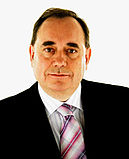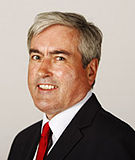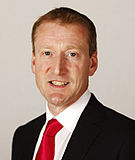Scottish parliamentary election, 2011
|
|
|||||||||||||||||||||||||||||||||||||||||||||||||||||||||||||||||||||||||||||||||||||||||
|---|---|---|---|---|---|---|---|---|---|---|---|---|---|---|---|---|---|---|---|---|---|---|---|---|---|---|---|---|---|---|---|---|---|---|---|---|---|---|---|---|---|---|---|---|---|---|---|---|---|---|---|---|---|---|---|---|---|---|---|---|---|---|---|---|---|---|---|---|---|---|---|---|---|---|---|---|---|---|---|---|---|---|---|---|---|---|---|---|---|
|
|||||||||||||||||||||||||||||||||||||||||||||||||||||||||||||||||||||||||||||||||||||||||
|
|
|||||||||||||||||||||||||||||||||||||||||||||||||||||||||||||||||||||||||||||||||||||||||
|
All 129 seats to the Scottish Parliament 65 seats needed for a majority |
|||||||||||||||||||||||||||||||||||||||||||||||||||||||||||||||||||||||||||||||||||||||||
| Turnout | 50.4% |
||||||||||||||||||||||||||||||||||||||||||||||||||||||||||||||||||||||||||||||||||||||||
|
|||||||||||||||||||||||||||||||||||||||||||||||||||||||||||||||||||||||||||||||||||||||||

The left side shows constituency winners of the election by their party colours. The right side shows regional winners of the election for the additional members by their party colours. * Indicates boundary change - so this is a nominal figure
|
|||||||||||||||||||||||||||||||||||||||||||||||||||||||||||||||||||||||||||||||||||||||||
|
|||||||||||||||||||||||||||||||||||||||||||||||||||||||||||||||||||||||||||||||||||||||||
The 2011 Scottish Parliament election was held on Thursday, 5 May 2011 to elect 129 members to the Scottish Parliament.
The election delivered the first majority government since the opening of Holyrood, a remarkable feat as the mixed member proportional representation system used to elect MSPs was, according to Jack McConnell, originally implemented to prevent any party achieving an overall parliamentary majority. The Scottish National Party (SNP) won 69 seats, the most the party has ever held at either a Holyrood or Westminster election, allowing leader Alex Salmond to remain First Minister of Scotland. The SNP gained 32 constituencies, twenty two from the Scottish Labour Party, nine from the Scottish Liberal Democrats and one from the Scottish Conservatives. Such was the scale of their gains that, of the 73 constituencies in Scotland, only 20 came to be represented by MSPs of other political parties. The Scottish Labour Party lost seven seats and suffered their worst election defeat in Scotland since 1931, with huge losses in their traditional Central Belt constituencies and for the first time having to rely on the regional lists to elect members within these areas. They did, however, remain the largest opposition party. Party leader Iain Gray announced his resignation following his party's disappointing result. The Scottish Liberal Democrats were soundly defeated; their popular vote share was cut in half and their seat total reduced from 17 to 5. Tavish Scott announced his resignation as party leader shortly after the election. For Scottish Conservatives, the election proved disappointing as their popular vote dropped slightly and their number of seats fell by 2, with party leader Annabel Goldie also announcing her resignation.
...
Wikipedia





